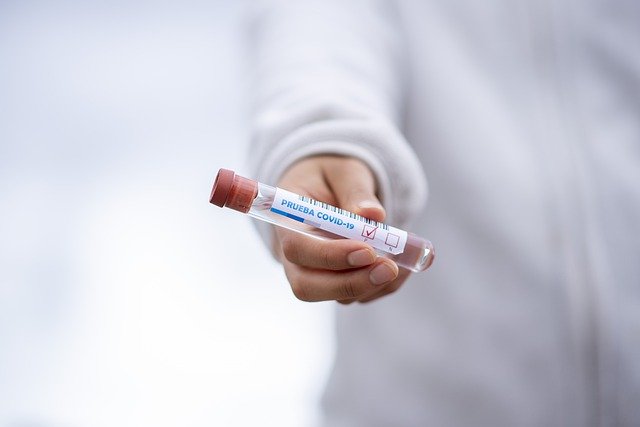Search
Is COVID-19 an actual disability under the ADA? Not always, says one court.

Image by fernando zhiminaicela from Pixabay
In anticipation of the triumphant return of The Employer Handbook Zoom Officer Hour on Friday, June 25 at Noon Eastern, when we’ll focus on answering all of your COVID-19 return to work questions, it struck me that one of the big issues is COVID-19 itself. Specifically, is COVID-19 a disability under the Americans with Disabilities Act?
If you haven’t done so already, go ahead and register here for this free event. And below, I’ll provide a sneak preview of how one court resolved whether COVID-19 is an ADA disability.
In this recent opinion, a federal judge had to determine whether a plaintiff pled enough information in her complaint to plausibly demonstrate her employer had fired her because her brother, a co-worker, had COVID-19. That’s an associational disability discrimination claim for those of you keeping score at home.
The defendant’s position was that it fired the plaintiff because she lied about having close contact with her brother, later diagnosed with COVID-19. But, it also argued that the plaintiff’s complaint was too light on facts to show that her brother’s COVID-19 was an ADA disability.
The ADA defines an individual with a disability as (1) a person who has a physical or mental impairment that substantially limits one or more major life activities, (2) a person who has a history or record of such an impairment, or (3) a person who is perceived by others as having such an impairment.
Since the plaintiff asserted an associational discrimination claim, I’m going to focus here on a person who has a physical or mental impairment that substantially limits one or more major life activities.
On a motion to dismiss, the court can only go on what the plaintiff pleads in her complaint. Here, the plaintiff alleged that her brother became ill at work, went to the emergency room, took a COVID-19 test, and quarantined as ordered by his medical provider while awaiting his test results, which came back positive four days later. She further described COVID-19 generally as something that “causes an individual to develop symptoms that can impact the respiratory system, immune system, and nervous system, and some people develop acute respiratory distress syndrome. As a result, infection with coronavirus can substantially limit several major life activities such as breathing, mobility, performing manual tasks, smelling and tasting, and the disease makes it difficult to accomplish other activities of daily living.”
I’m not the only one that emphasized the “can–can.” The court did too. You see, while the bar is low for what constitutes a disability, a plaintiff still “must allege factual matter explaining how the alleged ailment substantially limits a major life activity.” And in this case, the plaintiff did not allege any facts about whether the brother suffered from any of the above-mentioned COVID-19 symptoms.
Nonetheless, the plaintiff argued that her brother was substantially limited in his ability to work because he had to miss several days of work. The court gave this argument the back of the hand:
If [the plaintiff] is correct, then employers across the nation will be shocked to learn that if any of their employees are sick for just a few days, then those employees are “disabled” and now protected by the ADA. [The plaintiff] never alleges that her brother could not work from home, or that he was unable to work any type of job due to his infection. Further, even if [the plaintiff] had alleged that [her brother] was unable to work any job while quarantining, she certainly did not allege that the limitation was because complications from his particular bout with COVID-19 required it.
Unfortunately for the plaintiff, her second argument that her brother was substantially limited in his ability to communicate also fell short.
[The plaintiff] points to no law that provides “in-person communication” is a major life activity. To believe otherwise would mean that any of the millions of Americans who quarantined, including those without COVID-19, those infected but asymptomatic, and those who were seriously ill, were suddenly “disabled” under the ADA.
Case dismissed.
Does this mean that, definitively, COVID-19 is not a disability? Let’s not go that far. The EEOC has said that COVID-19 could be a disability under certain circumstances. Even the court’s opinion suggests as much (“[the plaintiff] offered the Court nothing to allow it to determine if [her brother] couldn’t work because of the disease itself, i.e., he was on a ventilator or in the hospital.”) I’d also imagine that long-haul COVID-19 may sometimes be a disability.
In other words, as with any possible disability, you’ll need to approach it on a case-by-case basis. Better yet, you may want to focus instead on whether you can accommodate the individual reasonably (and without creating any undue hardship) rather than spend psychic energy on discerning whether a condition technically qualifies as a disability.
 The Employer Handbook Blog
The Employer Handbook Blog


